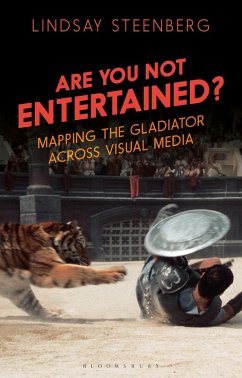Anglo-American culture is marked by a gladiatorial impulse: a deep cultural fascination in watching men fight each other. The gladiator is an archetypal character embodying this impulse and his brand of violent and eroticised masculinity has become a cultural shorthand that signals a transhistorical version of heroic masculinity.
Frequently the gladiator or celebrity fighter - from the amphitheatres of Rome to the octagon of the Ultimate Fighting Championships - is used as a way of insisting that a desire to fight, and to watch men fighting, is simply a part of our human nature. This book traces a cultural interest in stories about gladiators through twentieth and twenty-first-century film, television and videogames.
Frequently the gladiator or celebrity fighter - from the amphitheatres of Rome to the octagon of the Ultimate Fighting Championships - is used as a way of insisting that a desire to fight, and to watch men fighting, is simply a part of our human nature. This book traces a cultural interest in stories about gladiators through twentieth and twenty-first-century film, television and videogames.









